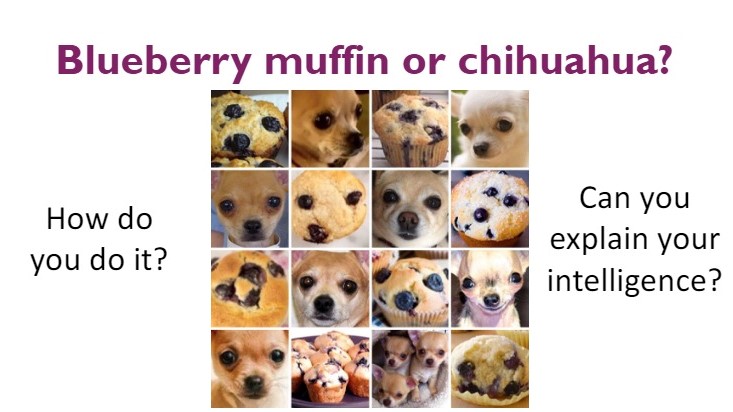Week 6: Going back to school as a “Mature Student”

My mother started referring to me as middle-aged a few years ago. This was technically correct since the life expectancy for females is holding at around mid 80s in my country but it still hurt a little bit. I have always considered myself to be young at heart and being reminded of my chronological age in that manner felt distressing… is my life really half over already? Middle-aged sounds old!
I was worried about how I would fit in with the university crowd going back to school after more than 20 years away from university and academia. The thing is, I never really stopped learning. For 15 of those years I have been surrounded by various academics in a very professional and analytical environment, so it was not really that much of a shift. What I am enjoying the most is getting to deep dive into topics that I am very invested in, and being able to think of the real world application of a lot of it with so many years of work and lived experience.
It feels really good to be able to understand what I am reading about when it comes to world politics and inequalities. I feel like I care more about it and it’s making more sense than when I started university as a teenager. I am very motivated to do all of the independent work and reading that this fusion/intensive model requires. It makes a lot of sense to me that we are being challenged to learn more from each other than through endless hours of lectures. This is what our program wants us to do – learn how to work with a diverse group of people to set a path for a better future.
Through EFI, I have met people from all over the world with different backgrounds and different ages. Some are parents (like me), and a few are even close to my age, while others are just starting on their journey of life after graduation. This combined experience has opened up my mind to new ways of thinking, places I want to see, cultures I want to experience, and new authors I want to read.
Something that has impacted me greatly on this journey back to school has been my identity as a mother. Raising a child alone has meant a very different life than the one I had planned, most times meaning that dreams I had needed to wait. I had to adjust my goals and expectations due to my economic circumstances or the social needs of my child.
The opportunity to be myself, separate from my identity a mother, and do something that is my own, just for me – and find success at it – has been very validating. I know I made the right decision for me and its the right time, and I am already thinking of the course change I want to make in life when I have my parchment in my hand.
It does make me a bit sad that I won’t have as many years to make an impact on the world anymore, than if I would have set this course much earlier in my life, but I am determined to really make the second half count. Not to say my life up until now has not had an impact but I feel I can reach further, push higher now.
I really want to thank everyone who has been part of this journey with me so far. It’s really nice to get interactions on my blogs or discussion boards and know that something I have said has affected another person in some way – I definitely feel affected each time I read someone else’s post and start to put together a picture of my classmates. I just wish we had our images on our blogs (I tried to set this up the other day but it didn’t seem to carry over to this site).
Lastly a few fun images from my week: The featured image up top is one of the slides from my Neuropolitics intensive lecture.
and
The image after the error message in the middle of editing my E&I paper (this seems suspiciously virus-y). Thankfully I didn’t lose much content.

I HAVE A FAVOUR TO ASK!!
Will you please share a comment on my blog about one or all three of these:
1) a review of an EFI class you have taken that you would recommend others consider taking – whether it was due to the content, the way it was delivered, or how much it helped you for your project.
or
2) a book that you think everyone should read.
or
3) A topic or person you think we should look into.
Here’s mine:
1)Indigenous Futures – amazing instructor and the best intensive I have been in so far – we had two amazing guest lecturers and I learned so much. If you are at all interested in understanding more about the Indigenous worldview and the effects of inequality around the world this is the class for you.
2)Viral Justice by Ruha Benjamin – I haven’t even read the whole thing yet – but in the words of the author herself “This book is for everyone who, deep down, knows our fates are linked, even when our antisocial system tries to convince us otherwise (pg 16).”
3)Henrietta Lacks – if you don’t know her story already, please do look it up – here’s a good place to start: Henrietta Lacks – Wikipedia
Thanks for reading – see you next week!




Thanks for the shoutout in your blog, Darcie ; ) I’ve always assumed being a single parent was really really hard – and now that I’m getting a tiny taste (and I do mean tiny), I can really appreciate the arch of your life and where you are in it. This programs and peers like you have made me really proud of us middle-agers… for the most part, we grew up in a time and under parents who set their career stakes into the ground early in life and road it out. Not long after we were released into the adult world, the rules changed. No more lifelong careers for most, no retirement packages or retiring at 55 or even 65. Many are suffering from the inability or unwillingness to adjust to the current reality and keep looking to the government to fix it and to other to blame it on – at least in the US, I believe the dynamic nature of the work paired with the inability of the workforce to adapt is squarely at the root of much of the anger/hate/discrimination/inequity/exclusion in our society.
Now for my homework…
1) I have really gotten a lot out of my Coloniality of Data class. My blog post is based on that class, but I don’t really talk much about the course. The instructors due a true team teaching and interdisciplinary approach. They do a lot of “close reading” where they take the class deep into dissection and discussion of complex text and I’ve had many aha moments about how and why the world works the way it does — and the consequences of it. It really makes me think so differently about data and science.
Wow! Some of those chihuahuas are so ugly they look like blueberry muffins! (j/k-maybe)
This post really hit home for me, Darcie. It’s definitely different to go back to school with a few years of living under your belt and getting to see and experience how the world works vs. how we maybe think it should work or would like it to work… I have this must older cousin (she’s in her eighties) who went back to school in her 40s to get a PhD in psychology. And back when I was still hurting over someone making a comment about how I would be going back to school as a “nontraditional student” which in his opinion academics didn’t take as seriously as “traditional students” (he wrote one of my recommendation letters for my first master’s degree so I kinda had to just eat the bitterness in silence), this cousin of mine sent me this lovely email talking about how going back to school as a middle-aged student was the best decision she ever made. It did lead to an epic career for her, so I try to channel when I start to worry about how long I’ve waited to return to school (although I really couldn’t have done it any sooner) and what that means for what I’ll be able to accomplish afterward.
And I completely just told Janel she should read a book about Henrietta Lacks before running across your recommending everyone should learn more about Henrietta Lacks. Guess it’s just a week for ethical science quandaries?
I’m only in the pre-intensive phase of Migration and Forced Displacement so don’t know that I can recommend it yet (and since I have a group project to do for that running up against group projects in Interdisciplinary Futures and Insights Through Data, I’m having very bitter thoughts about group projects right now), so let’s do a book… Let’s see…. I don’t know if you read fiction, but if so, I’d like to recommend The Candy House by Jennifer Egan which deals with the digitization of memory. It’s technically the sequel to another book she wrote, A Visit From the Goon Squad, but I read it without reading the first book (and then went back and read the first one because I was curious why it won a Pulitzer) and had no trouble following along. For nonfiction, Artificial Unintelligence by Meredith Broussard seems apropos. It looks at some of the myths about AI and explains why they’re myths.
Great blog post Darcie! I’ve found that being part of EFI has been a great opportunity to work with people with different experiences but also who come at things from different angles and paces. Where we’ve shared a course, I’ve admired your ability to speak up, ask questions and offer your comments. It takes me a bit of time to process my thoughts (especially in the early hours of the morning) and think about how to say things in a way that makes sense to others/feels relevant to others so I tend to observe and take things in, but I find your contributions great 🙂
I’ve loved viral justice so far as a book but seeing as it’s already been mentioned, for non-fiction I would recommend a Little Life. Hanya Yanagihara has an incredible way of taking us readers through the lives and times of four friends. I think this is one of the few books that I’ve read that does this in a way that you can practically imagine yourself as part of the book and it really uncovers some of the ways inequalities/privilege etc. manifest in every day lives. For non-fiction, I would recommend a book that I’m almost at the end of which is “written in bone” . Sue black is a forensic anthropologist in Scotland that uses her book as a platform to educate us on how our bones can tell the stories of where we’ve been, who we have interacted with and what has happened to us. Really cool book!